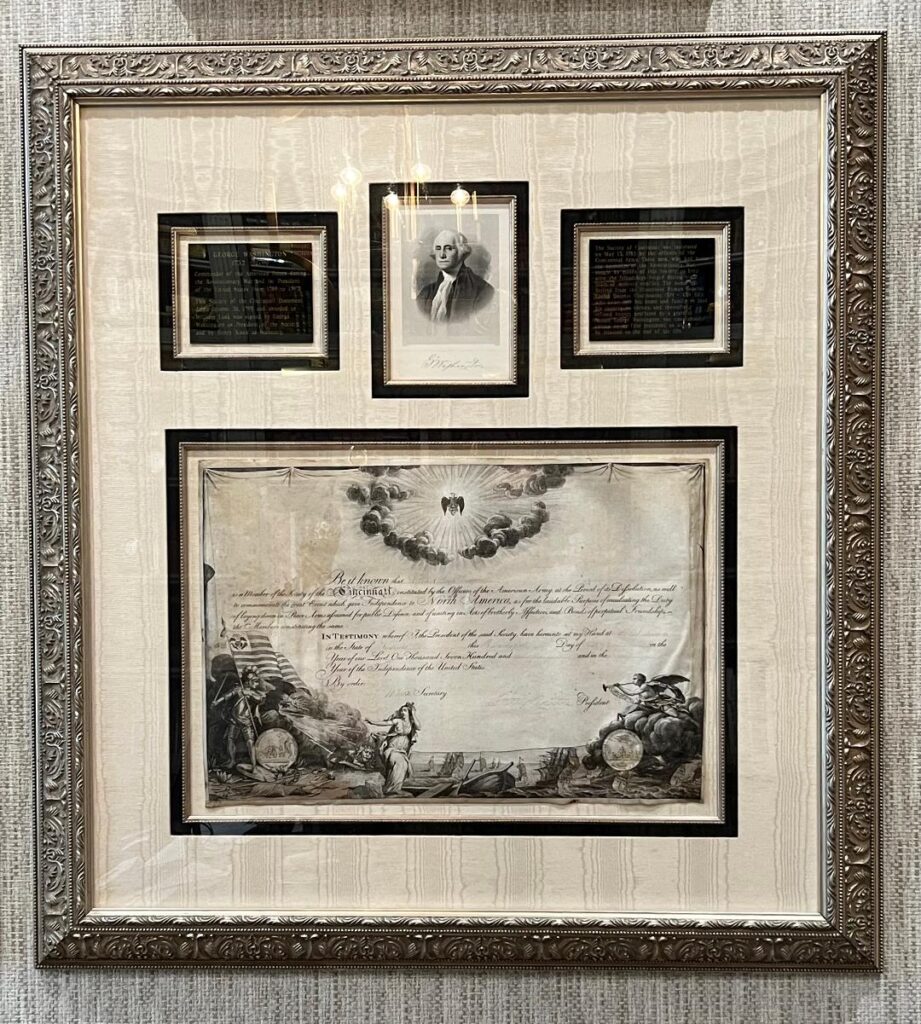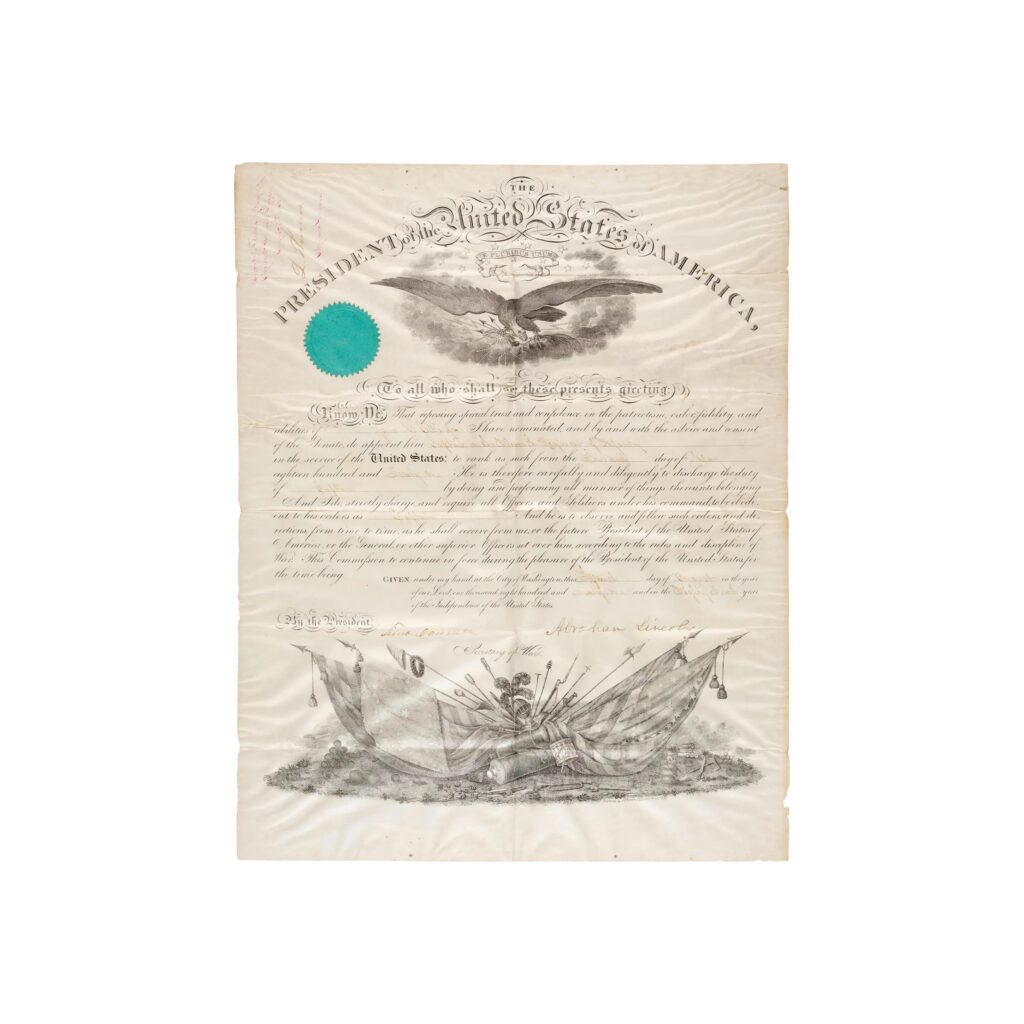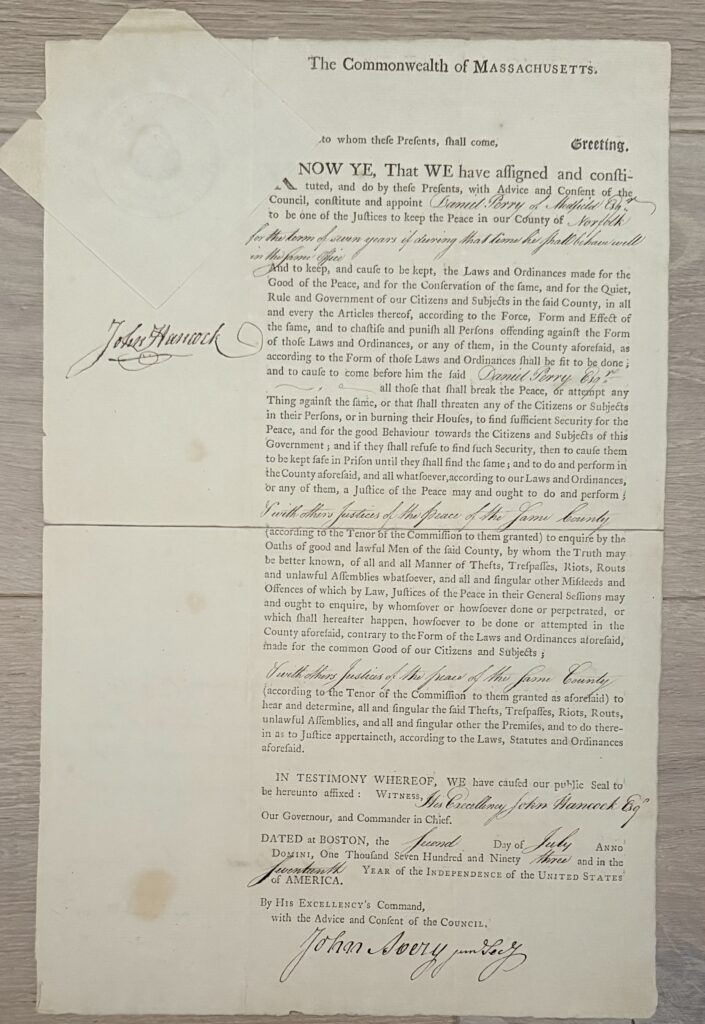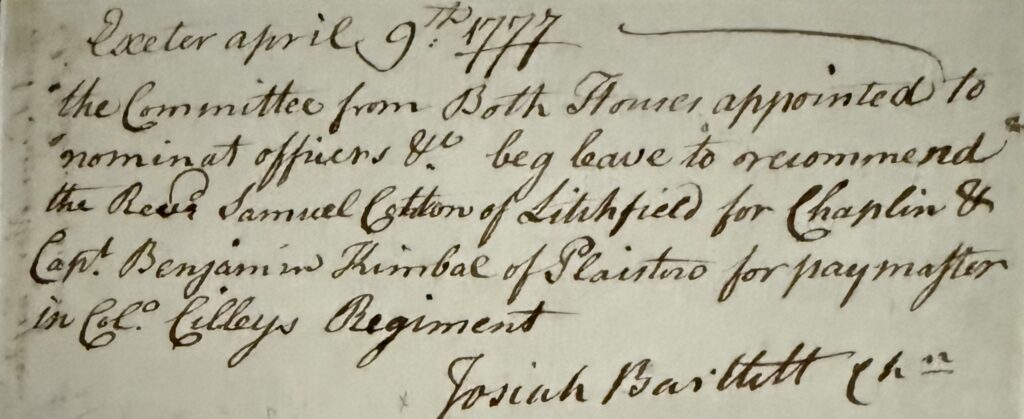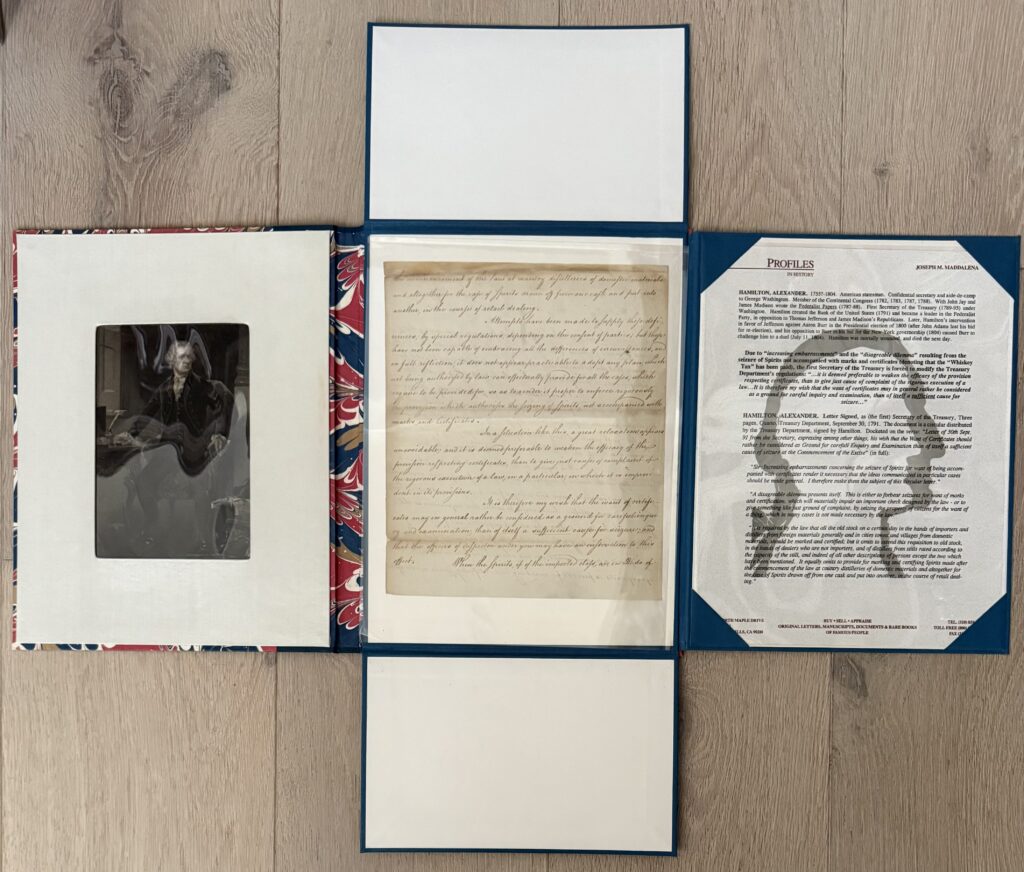IN THIS BEAUTIFUL AND ICONIC DOCUMENT, GEORGE WASHINGTON APPROVES MEMBERSHIP OF A REVOLUTIONARY WAR SOLDIER IN THE SOCIETY OF THE CINCINNATI
Partly-printed vellum Document signed “Go: Washington,” one page, 21 x 15, January 1, 1784. A Society of Cincinnati membership certificate issued to “William Lush. Esquire” In part: “Be it known that William Lush Esq. is a Member of the Society of the Cincinnati; instituted by the Officers of the American Army, at the Period of its Dissolution, as well to commemorate the great Event which gave Independence to North America, as for the laudable Purpose of inculcating the Duty of lying down in Peace Arms assumed for public Defence, and of uniting in Acts of brotherly Affection, and Bonds of perpetual Friendship…In Testimony whereof I, the President of the said Society, have hereunto set my Hand at Mount Vernon.” Signed at the conclusion by Washington as the Society’s president and countersigned by Henry Knox as secretary. Handsomely set into a spectacular large framed presentation. In very good to fine condition with Washington’s signature entirely legible, which is not often the case with these vellum documents.
The Society of the Cincinnati was a fraternal and charitable association of Continental Army officers that sparked widespread conspiracy theories and tested Washington’s efforts to carefully manage his legacy.
In the spring of 1783, after enduring eight long years of war, the main part of America’s Revolutionary army was camped along the Hudson River in New York waiting for word that a peace treaty had been signed. The soldiers—officers and enlisted men alike—had not been paid in months, in some cases longer, and feared being sent home without their pay. Rumors spread that the soldiers would march on Philadelphia to force Congress to pay them or would even try to establish a military dictatorship.
Instead, the officers banded together to form an organization that would honor their fight for American independence while providing support for their common struggles. On May 13, 1783, the group was founded and named the Society of the Cincinnati, after the ancient Roman hero Lucius Quinctius Cincinnatus. More than 2,200 officers joined the Society and pledged themselves to its principles: commemorating the achievement of American independence, preserving the union of states that resulted, and maintaining the bonds of friendship forged in war. George Washington became the Society’s first president general, leading his officers from war to peace.
The Society of the Cincinnati embodies one of the most important legacies of the Revolutionary War—that Americans who had left their homes to fight for their country were willing to abandon their swords and support the subordination of military power to civilian rule. Theirs is the story of how the war ended, what happened next, and how an armed revolution gave way to a civilian republic.
